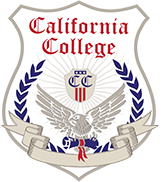Course Competencies
• Learn and use the specialized vocabulary of management
• Determine the advantages and disadvantages of different business organization and ownership
• Study the functions of management—planning, organizing, leading, and controlling
• Evaluate the theories of management and motivational theories
• Explore aspects of marketing as they relate to management decisions
• Research sources of financing for a business and the financial services available
• Recognize the need for financial planning, financial decision making, and the accurate maintenance of accounting records/financial statements
• Appreciate the requirements of effective human resources management—effective selection, development, supervision, evaluation, retention, releasing, and communication with employees
• Value the importance of maintaining required records for employee benefits, taxes, insurance, and government agencies
• Investigate types of organizational structure and levels in management—line/staff, line, functional, team concept
• Know the importance of applying up-to-date technology in all areas of the business operation including the management component
• Incorporate time management into personal applications and recognize the need for professional time management in the performance of professional duties
• Appreciate the role of networking in personal and professional advancement
• Study the influence of organized labor on business operation and government
• Be aware of the processes of operations management—production of a product, scheduling production, procuring materials, and managing inventories
• Reinforce the importance of human relations and business ethics when working with others and supervising others
• Apply a decision making-model to the process of determining management decisions
• Recognize the need to balance the demands of owners, shareholders, labor, government, regulatory agencies, and the public while providing goods and service competitively
• Understand the value of a good corporate or small business “image” and social responsibility
• Explore the importance of establishing equitable and appropriate policies and procedures for effective management
You must be logged in to take this course → LOGIN | REGISTER NOW
